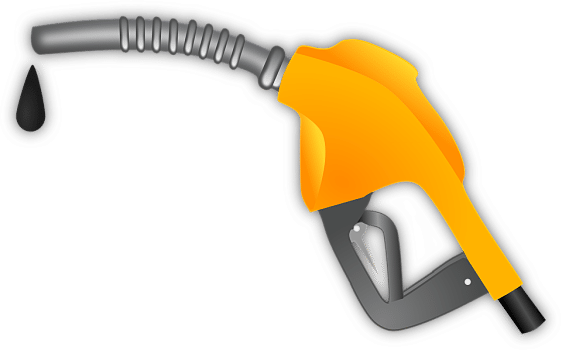Every time a motorist visits a gas pump, they are faced with a choice: what octane fuel should they use for their vehicle. Is regular unleaded good enough? Or would premium be a better choice, even if it costs a bit more?
The answer: it depends. There are a range of factors that consumers should consider when they decide what octane gas they want to use, including type of car and engine, the vehicle’s age, and the amount they want to spend. Before that, however, let’s explain how an engine works, what “knocking” is, and how octane levels in a car’s gasoline affect both.
How Gasoline Works In the Engine
Every driver understands that gasoline is the lifeblood of the engines that power modern-day vehicles. After all, if you run out of gas on the side of the highway, you’re out of luck.
Simply put, a car engine takes gasoline and – by heating it – creates explosive energy that gives the car enough oomph for forward motion. The gasoline waste that is created comes out of the car in the form of exhaust.
As part of the internal combustion engine, an important consideration is the process by which gasoline is ignited in the engine. However, incorrect octane levels can cause the air-fuel interaction to falter and the engine to ignite prematurely. This is a phenomenon called “knocking.”
In fact, knocking is so serious of an issue that octane levels are actually a measure of a vehicle’s ability to resist knocking.
What Can Knocking Do to Your Engine
Knocking, sometimes called “pinging,” gets its name from the sound that makes when the air-fuel mixture in an engine is off and the engine begins to rattle. Normally, an engine “purrs” and is relatively quiet; knocking can be a jarring experience for a motorist in the driver’s’ seat.
More than just an unpleasant noise, however, knocking can have serious – and seriously harmful – effects on a car engine. Even slight knocking can require an expensive trip to a mechanic to straighten out. If it is allowed to go on for even a bit too long, knocking can lead to severe damage to the piston, the cylinder, and – often – the failure of the entire engine. The costs of knocking can be in the thousands of dollars.
Given the possibility of so many serious consequences, should you use higher octane gasoline just to avoid knocking? Not so fast, experts say.
As Cars Evolve, Octane Levels Are Somewhat Less Important
With better technology and increased efficiency, engines today are very different than they were even two decades ago. And because of that increased efficiency, knocking is no longer pervasive in virtually every car.
Some types of engines simply don’t knock in the way they once did, making the octane levels of the gasoline not quite as important. But car manufacturers continue to recommend that some vehicles are filled up with higher octane levels. You can usually find your manufacturer’s’ recommendation in a vehicle’s manual.
Why Is Higher Octane Gas Recommended?
According to the United States Department of Energy, higher octane fuels are often recommended for cars that use a higher compression ratio or have supercharged or turbocharged engines. That’s because these cars force more air into the engine, giving the vehicle more energy but also increasing the risk of knocking.
Because sports cars and other premium vehicles are often associated with turbocharged engines, higher octane gas has often been associated with more expensive, premium type cars. But not all premium cars require higher octane gas – for instance, many Cadillacs can be run on lower-octane gas.
Why Is Higher-Octane Gasoline Expensive?
The components that are used to make higher-octane are typically more refined, and this more expensive, than the components of regular gasoline. That means the price is higher, sometimes my as much as 30 or 40 cents.
Some experts have argued that higher-octane gas contributes to better fuel efficiency, although that is not entirely clear from rigorous research. People with a particularly strong interest in the environment may opt for higher-octane gas because it can lead to lower emissions of carbon dioxide, the agent that causes climate change.
Follow Recommendations or Make Your Own Call?
In the end, the advice is simple: if your manufacturer says your car requires higher octane gasoline, you should purchase it for your car – plain and simple.
However, if your manufacturer says your car may run better on higher octane gas, but that it is not required, you can make your own decision. You may want to consider that the higher price for high-octane gasoline is typically not offset by lower maintenance costs. But you may decide that keeping your car in pristine condition, or reducing carbon dioxide emissions, matters more to you. If the manufacturer only offers a recommendation, the choice is really yours.
Finally, if a manufacturer says that regular unleaded gasoline is all that your car needs, you can take that recommendation to the bank. There is no need to upgrade to higher-octane fuel under that circumstance.
Ultimately, it’s up to you to keep your engine healthy. Do the research that you need on your car, relying primarily on the manufacturer’s’ recommendation, and then select the octane level that is right for you.

